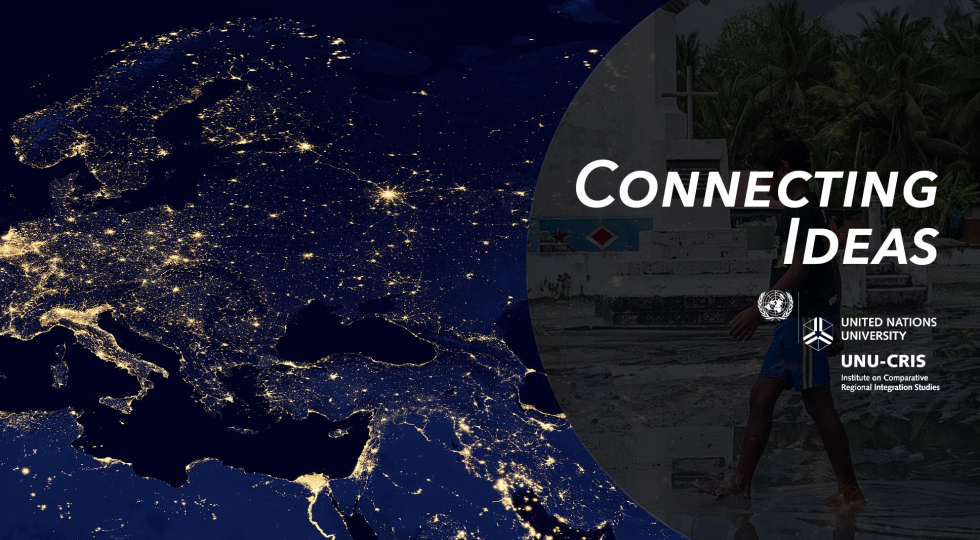Yes, Crises Do Happen: A Plea for Feeling More Vulnerable After COVID-19


Elke Verhaeghe
PhD Fellow, UNU-CRIS and Ghent University
23 March 2020 | #20.5 | The views expressed in this post are those of the author and may not reflect those of UNU-CRIS.
Belgians like to believe that things won’t be that bad. We are a ‘let’s wait and see’ kind of people. For the COVID-19 crisis, several friends and I initially took pride in our calmness and rationality: we would not buy into mass hysteria. The observation that things could really get that bad took us somewhat by surprise: to a privileged 26-year old, the emergence of a national crisis feels quite surreal. However, each of us has had to recognize that COVID-19 is a crisis and that drastic policy measures are needed to protect the most vulnerable in our society.
While COVID-19 rages on, we have yet to find an adequate response for that other crisis we are facing: the climate crisis. By continuing business-as-usual, we are each day contributing to the marginalisation of already economically and ecologically vulnerable people. In a new wave of colonization, we are creating climate frontiers in those places where people run out of food, out of water or out of territory to live. By the time the worst impacts of climate change will finally rid us of our disbelief that crises do happen, the damages will be plentiful, and the consequences irreversible. Yet, somehow, we don’t quite feel as vulnerable.

Not untouchable
One thing the COVID-19 epidemic has already taught us is that we are not untouchable. When the virus started, many thought its effects would not apply to us. It started in ‘oriental’ China, as had other viruses before. Surely, we in the modern West would not be affected. Later, when the virus arrived in Italy and the number of cases and deaths kept rising, many of us swallowed nervously. But Italy is the south of Europe – surely, we in the much better equipped North would not be affected. With denying risks, there comes a lot of distancing (or othering) too: surely, we are not like them (Oriental, Southern, traditional, unorganized). Surely, we (Western, Northern, rational, well-equipped) will not get sick.
But the virus did reach Belgium, and now my country is in lockdown. Many of my generation feel, for the very first time, what it is to be affected by anything that goes on in the world. Sure, we’ve witnessed other disasters. There have been wars and people have been fleeing from them. But that’s there, not here. There have been hurricanes and tsunamis, but never in Belgium. There have been other illnesses like Ebola, but those concerned only developing countries. We, however, have long deemed ourselves untouchable.
With the arrival of the COVID-19 virus, we are reminded once again that this is not true. Even if mortality rates are not yet skyrocketing (and hopefully never will), we are being affected in our personal lives. We can no longer go out for a drink. We can no longer go out for dinner. We cannot party our sorrows away. We have to share our home offices with our spouse (and for some, with their children). If we can’t telework, we either lose our incomes or face the fear of getting sick ourselves. We cannot visit our elderly family members. We lose hundreds of non-refundable euros for trips we will never make. We face empty shelves in the supermarket.
The thought that we are not untouchable has also reached our policy makers. Under the influence of COVID-19, the economically unthinkable became thinkable. While admittedly hesitant, eventually our ministers agreed on far-reaching measures which they knew would disrupt social life completely – in fact, they were intended to do so. Business activities were halted, flights were suspended. Undoubtably many financial losses will be felt, and many businesses will not survive this crisis. Yet the economy was, for once, considered less important. In the face of a national health crisis, business-as-usual was allowed to be disrupted. Societal priorities were allowed to shift.

Other crises, equally (un)touchable?
While COVID-19 is the most visible crisis today, it is not the only one we are facing. All over the world, temperatures are going up and soils are drying out. Our planet is heating up. The climate crisis is becoming tangible; go outside and you can feel it. Yet, as was true for the beginning of the COVID-19 outbreak, we are considering ourselves untouchable. Although soils have become infertile, sea levels have risen and unusual heatwaves have killed thousands in other places of the world, we are not yet affected. We are still rich, and we are still comfortable.
Distancing mechanisms are at work here too. Yes, tragedies are happening in Africa, but hasn’t Africa always been hungry? Yes, coastal communities are losing most everything, but haven’t such disasters always happened in these places (and honestly, can’t they just move?) Like COVID-19, the virus that is climate change is hitting the most vulnerable the hardest. But different from COVID-19, we lack the solidarity to disrupt our business and shift our priorities.
As we think that we are untouchable, we care less about those who are being affected. Lucky for us Belgians, the rains of February have once again made our soils soft enough for us to comfortably bury our heads in the sand. Yet the time will come that climate change hits us too. That rising sea levels endanger our coastal communities, that droughts disrupt our food systems and that our shelves are once again empty. If we can take anything away from the COVID-19 crisis, it is that we are not untouchable. As Europe is now the epicentre of the outbreak, it demonstrates that our lives can be disrupted and yes, it can be that bad.
Let us hold on to this this sense of urgency, which many of us only knew from poorly scripted movies and Netflix series, and drastically shift our priorities. Let’s decide to be scared and to turn that fear into action. We have seen business-as-usual disrupted, so we know it is possible. We have had our trips around the world cancelled despite all our feelings of entitlement. We know that we can take strong measures if we want to. Let’s do so before the more vulnerable are once again paying our price.
More on the coronavirus in the Connecting Ideas series:
What Can the Coronavirus Teach Us About Regional Integration in Health?
When China Sneezes, Asia Catches a Cold
Trade Policy and the Fight Against the Coronavirus
